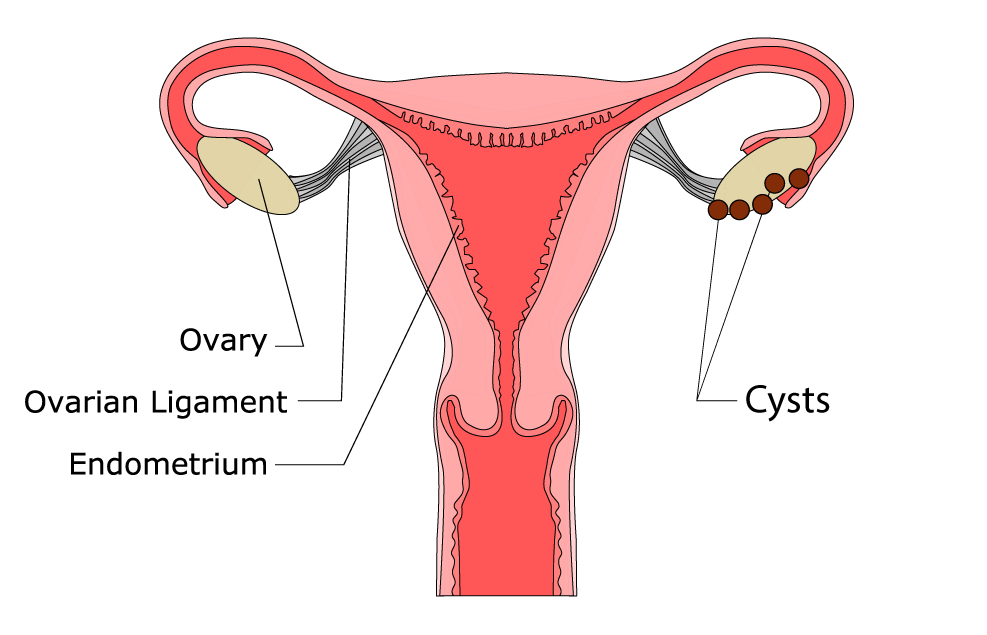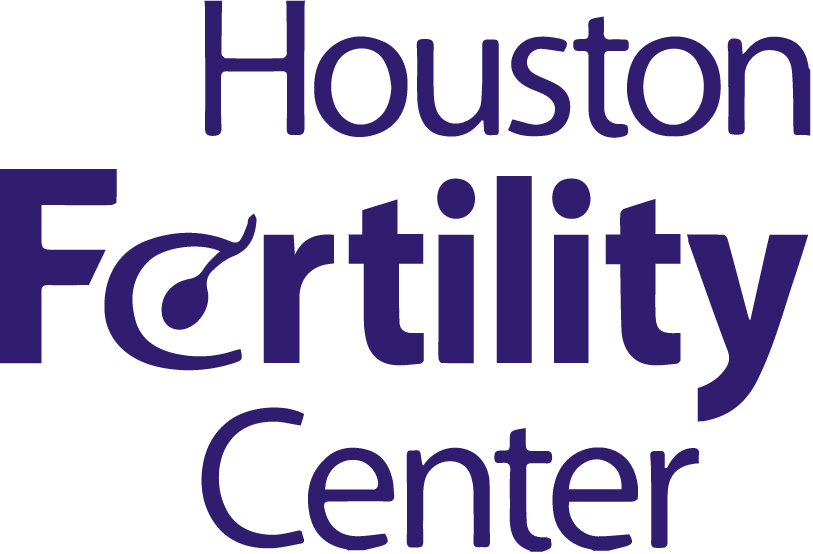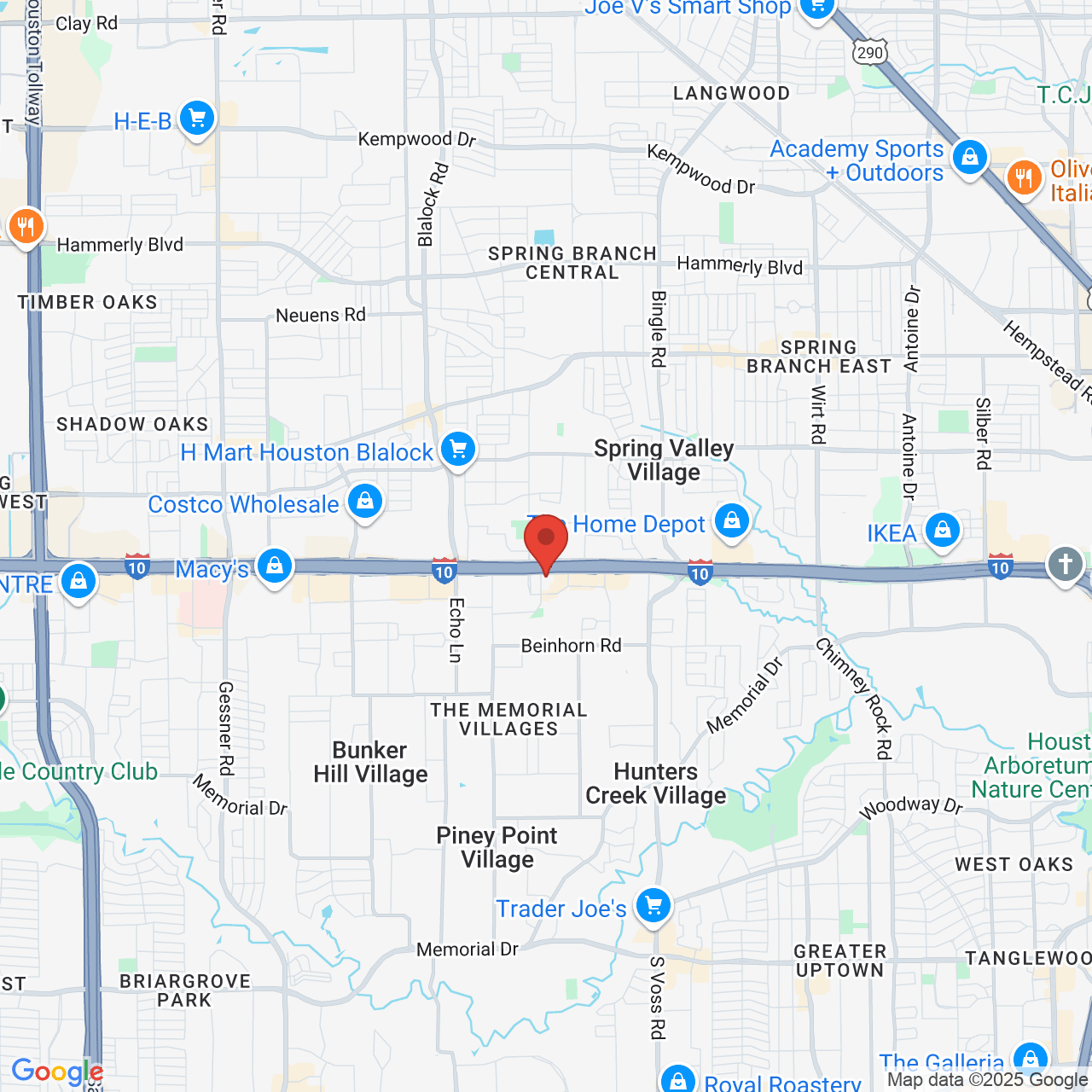Polycystic Ovary Syndrome Treatment in Houston, TX
Polycystic ovary syndrome is caused by a hormonal imbalance, which can affect your menstrual cycle and make it difficult to conceive.
Though it can't be cured, Dr. Sonja Kristiansen can evaluate your condition and recommend treatment options for pregnancy.
Learn more about what polycystic ovary syndrome might mean for you and how we can help at our Houston, TX, clinic.

Polycystic Ovary Syndrome Explained
Polycystic ovary syndrome (PCOS) is caused by a hormonal imbalance that results in cyst growth in and on the ovaries. This condition can result in irregular menstrual cycles, such as missed periods or more frequent periods, and lead to female factor infertility.
During a healthy menstrual cycle, the egg is released from the ovary and travels down the fallopian tubes to the uterus. For many women trying to conceive, polycystic ovaries can cause egg damage or inconsistent ovulation. When the egg is damaged or not released properly, sperm are unable to fertilize it, preventing women from naturally conceiving.

Am I at Risk?
PCOS affects roughly one in 10 women in their childbearing years. It can develop at any age once you go through puberty, but has a strong impact on women in their 20s and 30s who are trying to conceive. Women who are obese or have a family member with PCOS have a greater chance of developing the condition themselves.
Find Relief for PCOS Visit Our Comfortable Office in Houston, TX
Dr. Kristiansen is board-certified in Reproductive Endocrinology and Infertility (REI). She is dedicated to helping women improve their fertility at her clinic serving Houston, TX.
If you have PCOS, she can help improve your chances of having children. We offer medication assistance programs and accept financing to help make any out-of-pocket costs more affordable.

If you think you have PCOS and would like to seek treatment at Houston Fertility Center, fill out our online contact form or reach us by phone:
Call: (713) 862-6181
"They don’t treat you like a business."
"I love this place and Dr. K has a high success rate. This is why I initially went to her clinic. They don’t treat you like a business but it’s very personal. I was successful on my first IVF attempt and had a healthy baby girl. I will be using her for my next baby when I’m able. Highly recommended."
Vicky Montenegro
What Causes Polycystic Ovary Syndrome?
Although the exact cause of polycystic ovary syndrome is unknown, doctors have linked it to high levels of androgen and insulin. To determine how these are factoring into your health, our team in Houston, TX, can evaluate you for the following health problems during your consultation:
Androgens
All women have a small amount of androgens (male hormones) in their bodies. However, women with PCOS produce higher levels than normal, which can cause acne, male-pattern baldness, excess hair growth, and irregular menstrual periods.
Insulin
Insulin is the hormone that assists with the digestion of food. When functioning normally, it turns sugar into energy. If your body is insulin resistant, your blood sugar levels can rise. Insulin resistance frequently leads to type 2 diabetes, especially in obese patients. However, insulin resistance can also cause an increase in androgens, which in turn can lead to PCOS.
Did You Know?
PCOS can lead to serious long-term health problems including high blood pressure, heart disease, and diabetes, so it is important that you seek a professional diagnosis right away if you think you might suffer from this condition.
The Diagnostic Process
If Dr. Kristiansen suspects you may have polycystic ovaries, she will perform a full physical examination and fertility evaluation at her clinic in Houston, TX. This may include a pelvic exam and transvaginal ultrasound. Using this technology, we can determine the health of your uterine lining and identify any cysts on your ovaries. If necessary, we may take additional blood tests to review your hormone levels.

"We will always be thankful..."
"Dr. Kristiansen and all the staff are great. We went in for a RIVF consultation and due to the way they treated us and made us feel we decided to begin the process as soon as we were able to. We will always be thankful to Dr. Kristiansen, Blanca, Melissa and especially Mayra they are all amazing, they helped us with our thousand questions and doubts and when we felt discouraged they kept our spirits up. Thanks to them we are now expecting our precious baby girl. We definitely recommend Houston Fertility Center."
Diana B
Get the Help You Need to Manage PCOS Request a consultation today
Because Dr. Kristiansen is board-certified in Reproductive Endocrinology and Infertility (REI), she can accurately diagnose and treat a range of reproductive issues, including infertility due to polycystic ovarian syndrome. She is dedicated to helping patients in Houston and the surrounding areas achieve their dreams of expanding their families.
If you are struggling with symptoms of PCOS, contact our fertility center in Houston, TX, for a consultation. You can fill out our online form or call us at:
(713) 862-6181
Treating Polycystic Ovary Syndrome
After diagnosing PCOS, we can establish a treatment plan. Although PCOS is incurable, you can manage symptoms with:
To determine the cause of PCOS, our team can perform a thorough evaluation using the latest techniques.
Making Lifestyle Changes to Manage Polycystic Ovarian Syndrome
Maintain a Healthy Diet
Weight loss can help lower insulin and androgen levels, and being mindful of what you eat can reverse insulin resistance. Eating a healthy diet can lead to weight loss and may even improve ovulation.
Exercise Regularly
Regular exercise can lower blood sugar levels. For those who have PCOS, daily exercise can treat insulin resistance to help prevent diabetes and keep your weight at a stable level.
"Y’all made our dreams come true."
"I Definitely want to thank Houston Fertility clinic. Y’all made our dreams come true. I couldn’t thank y’all enough we are obsessed with our baby girl. Anyone who is trying to conceive, I would definitely recommend them.
Dave Bertrand


